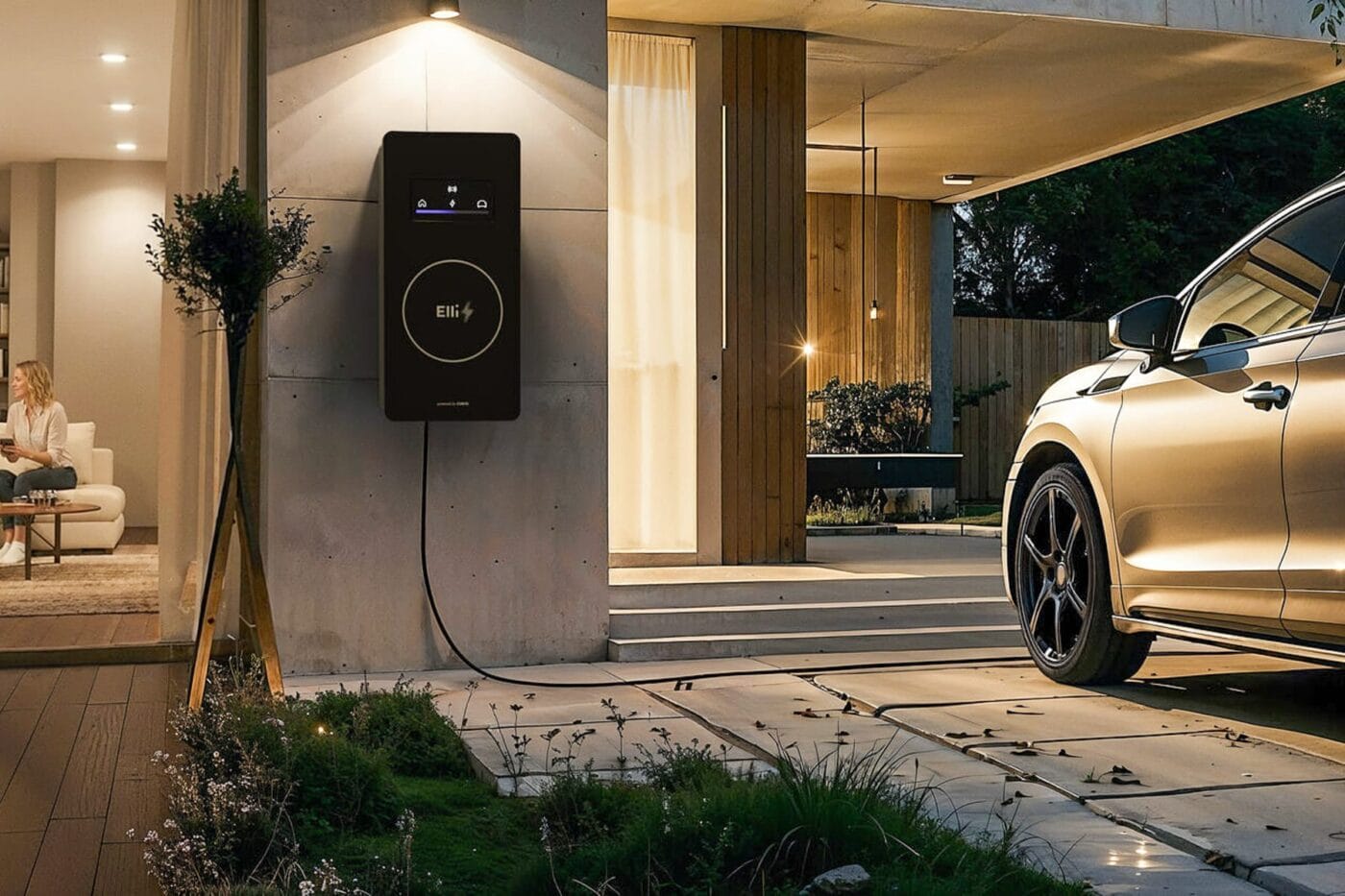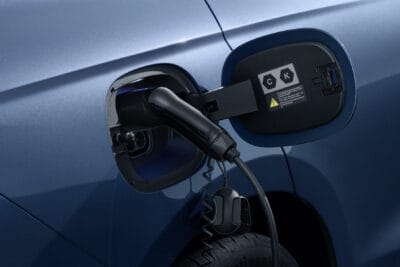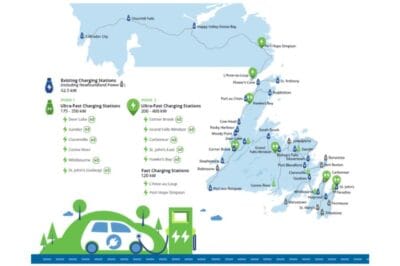Elli pilots bidirectional charging at home
The charging station developed by cooperation partner Cubos allows the battery of an electric vehicle to be used as home storage and to supply household appliances with self-generated solar power, according to Elli. The energy flows between the power grid, vehicle and household are controlled via the Elli Charging app.
The pilot project is scheduled to start in December 2025. Customers of the Volkswagen Group and photovoltaic provider Otovo can now apply to participate in Elli’s pilot initiative. As part of the project, Elli will provide selected participants with the DC bidirectional wallbox. However, this requires an electric VW in the household and an Otovo PV system on the roof.
For the technology to work, it must be a vehicle based on the MEB platform with a 77 kWh battery and software version 3.5 or higher installed. These vehicles are technically capable of providing DC bidirectional charging. In theory, this also includes Ford’s MEB models: the Explorer and Capri. It is not known whether these will also be eligible for the pilot project.
Elli estimates that bidirectional charging could reduce charging costs by up to 75 per cent in some cases – the pilot project will determine exactly how much this will be in practice. At the same time, Elli believes that independence from the public grid could be achieved to a comparable extent by using self-generated solar power in conjunction with bidirectional charging.
An important component of the pilot project is Cubos’ calibration-compliant Bidi wallbox. The DC wallbox enables energy flow of up to 11 kW in both directions and is designed to connect the electric car, the home solar system (from Otovo) and Elli’s software platform. Cubos itself is a partner of Ambibox, which already works with VW. The bidirectional BC11 wallbox will also be presented at the IAA and is scheduled to be launched in spring 2026.
In a follow-up project, Elli wants to make the energy from electric cars available via a virtual power plant on the European Power Exchange (EPEX). The stated goal is to combine stationary large-scale battery storage and electric car batteries with bidirectional charging solutions to form a ‘Managed Battery Network’ (MBN), which will stabilise the use of volatile renewable energies and enable the energy transition in Europe. Elli aims to achieve this by the end of the decade. The large-scale storage business is also set to launch in December, when the Elli PowerCenter in Salzgitter is scheduled for completion. This storage facility will have a capacity of 20 MW and 40 GWh. It will use LFP battery packs from PowerCo and is intended to serve as a platform for energy trading and future grid services.
“With our pilot project at IAA Mobility 2025, we’re opening a new chapter in the history of electric mobility,” said Elli CEO Giovanni Palazzo. “Bidirectional charging is the enabler of energy self-sufficiency at home, and with the initial rollout of our Managed Battery Network, we are elevating vehicle batteries and storage systems to the level of critical energy resources. In doing so, we’re bridging the gap between mobility and energy.”
Elli has been active in electricity trading on EPEX Spot since 2023 and had already announced a large-scale storage facility made from second-life batteries at that time. Elli has been working with the European solar platform Otovo since 2024, and VW customers have been able to purchase a PV system from Otovo for their (AC) wallbox since October 2024. Volkswagen is also promoting bidirectional charging through other channels: in Sweden, the Group has equipped a housing estate with electric cars and 200 bidirectional DC wallboxes from Ambibox.
This article was first published by Sebastian Schaal for electrive’s German edition.





0 Comments